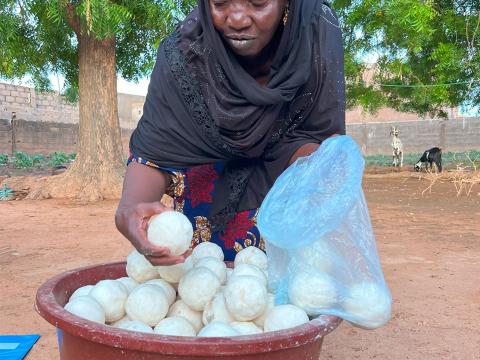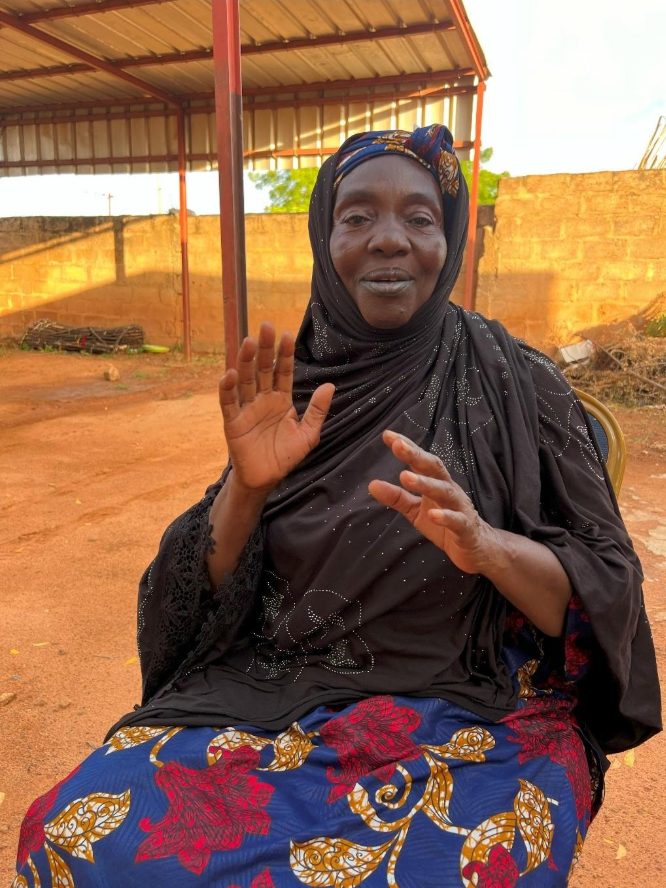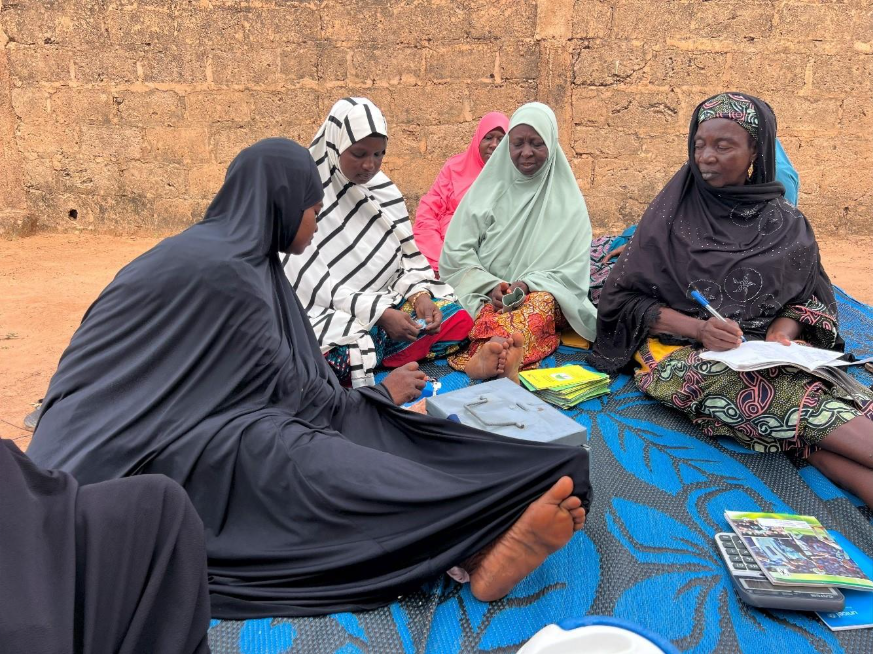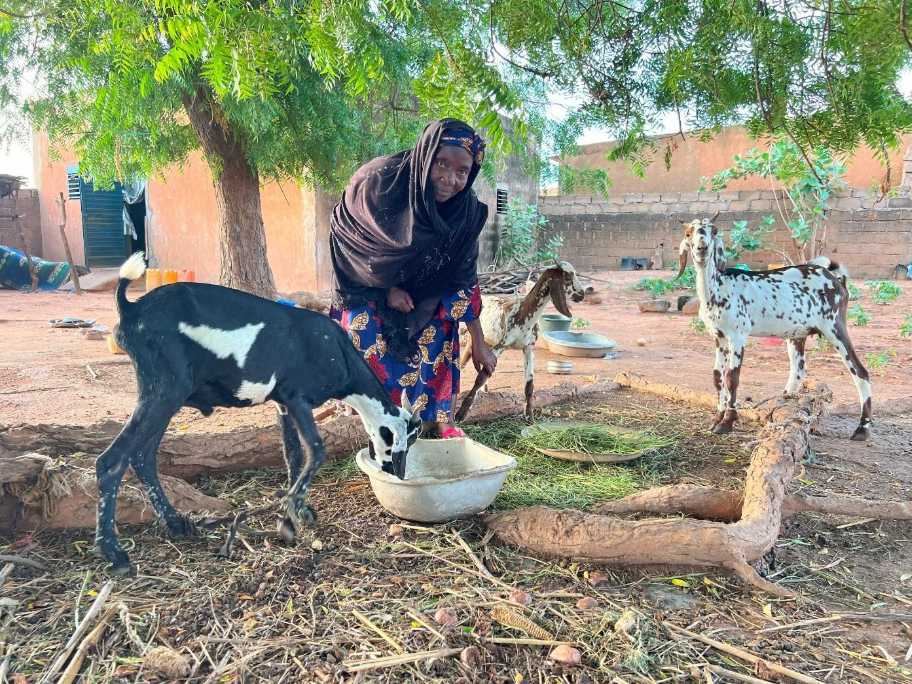" I no longer need to beg anyone " : Sadi’s Story of Empowerment

A humanitarian crisis is ongoing due to growing insecurity, deeply affecting the department of Torodi in Niger’s southwestern Tillabéri region.
Since 2022, this situation has resulted in significant population displacement, with over 15,000 internally displaced individuals registered in the municipalities of Torodi and Makalondi. These movements have created urgent needs in terms of food security, access to clean water, healthcare, shelter and protection.

Sadi Alhassane is a 60-year-old widow, mother of seven and grandmother of eight who lives in Torodi. Since her husband's death in 2022, she has shown great resilience and courage.
"When my husband died, I had to take over the family. I live in a rented house for 25,000 francs a month, and I struggle every day to feed my children.”, Says Sadi.
In order to survive, Sadi took on menial and exhausting tasks: selling sweets and bottle water in schools, and trading baobab leaves and poultry. But despite her efforts, the income remained insufficient.
"To provide for my children, I travelled everywhere from market to market. I even went as far as Tillaberi. But all my efforts weren't enough to allow me to provide enough for my children," she admits.
In this context, World Vision Niger has been operating in the country since 1994 through an integrated development and emergency approach. Its strategy for 2021-2025 aims to improve the living conditions of vulnerable children and communities, targeting more than 1.4 million children. It was at this time that Sadi's life took a decisive turn thanks to her involvement in a savings group supported by World Vision.
"I joined World Vision's Saving Group a few years ago. That's when everything started to change for me."
Sadi has benefited from practical training programmes in grain processing (dégué and couscous), sesame oil production and solid soap production.
'I didn't realise that I could learn so much at my age. Today, I know how to make soap, couscous and sesame oil, and I sell all of these things to support my family."

Project coordinator Kevin remembers : "Sadi was one of the most dedicated participants. She asked a lot of questions, she wanted to understand every step. She became a role model for the other women."
The group of 25 women received equipment and ingredients for soap making. After the training session, they used the ingredients to make 200 bars of soap, generating 200,000 CFA francs in income.
" We used this money to give small loans to the women in the group. This enabled several of us to start our own small businesses," Sadi explains proudly.

During the last Tabaski festival, the group donated five goats to female members of the group who had been displaced internally:
"We know what it's like to suffer. So, we wanted to share what we have."
Thanks to her new skills, Sadi was able to pay school fees for two of her daughters for three years.
"Before, I had to go and ask for help; before I was humiliated. Today, I feel useful. I can provide for my family with dignity."
"Thanks for this activity, there is always soap at home. Hygiene is better, and I no longer need to beg anyone," she adds with a smile.
The group's stock of ingredients is almost depleted. Sadi makes an appeal:
"We still have soap in stock, but our ingredients are almost gone. We are asking World Vision to help us so we can continue to produce soap and other things."
For Kevin, Project Coordinator at World Vision Niger: "Sadi's story is a living example of what empowerment can achieve. We are proud to have accompanied her on this journey. And we remain committed to supporting these courageous women."